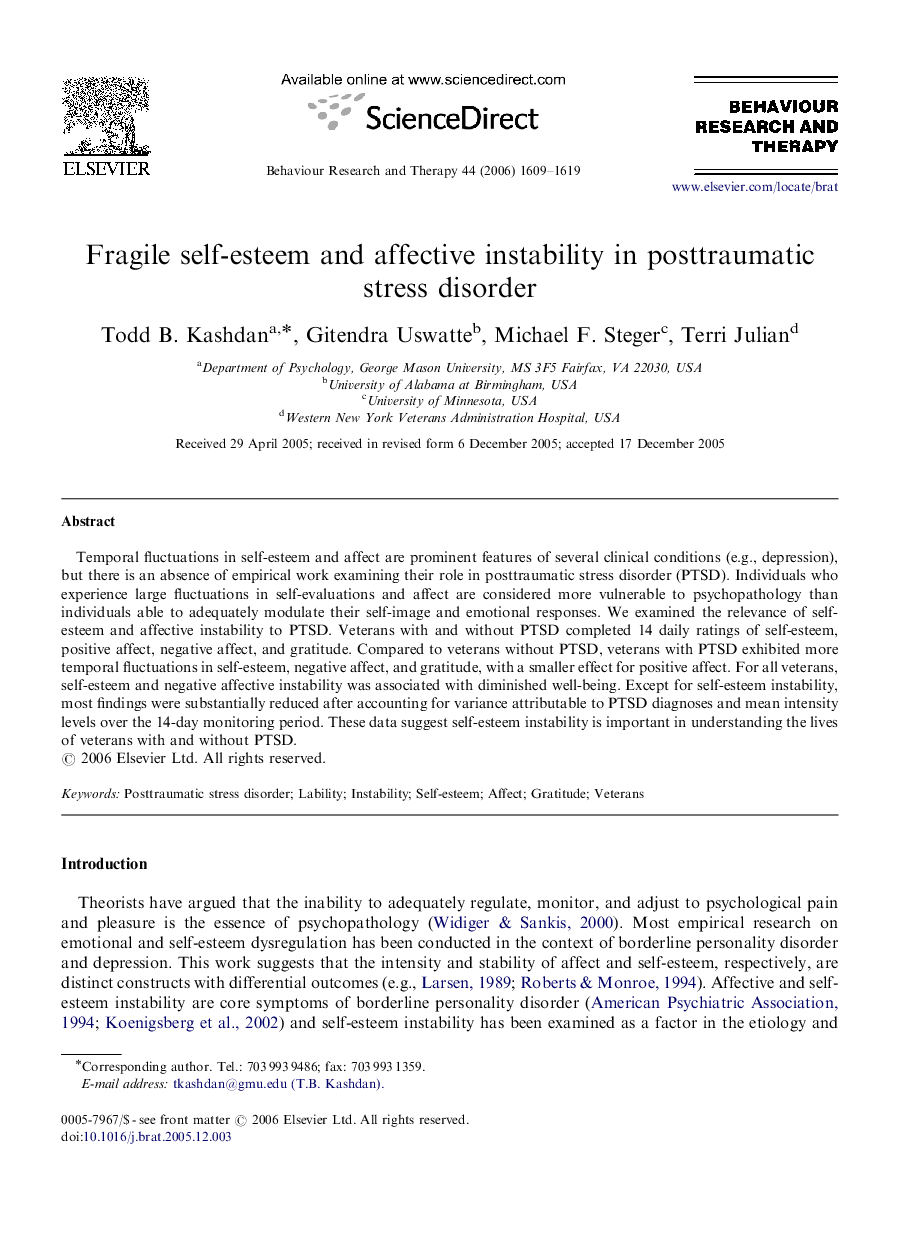| Article ID | Journal | Published Year | Pages | File Type |
|---|---|---|---|---|
| 902482 | Behaviour Research and Therapy | 2006 | 11 Pages |
Temporal fluctuations in self-esteem and affect are prominent features of several clinical conditions (e.g., depression), but there is an absence of empirical work examining their role in posttraumatic stress disorder (PTSD). Individuals who experience large fluctuations in self-evaluations and affect are considered more vulnerable to psychopathology than individuals able to adequately modulate their self-image and emotional responses. We examined the relevance of self-esteem and affective instability to PTSD. Veterans with and without PTSD completed 14 daily ratings of self-esteem, positive affect, negative affect, and gratitude. Compared to veterans without PTSD, veterans with PTSD exhibited more temporal fluctuations in self-esteem, negative affect, and gratitude, with a smaller effect for positive affect. For all veterans, self-esteem and negative affective instability was associated with diminished well-being. Except for self-esteem instability, most findings were substantially reduced after accounting for variance attributable to PTSD diagnoses and mean intensity levels over the 14-day monitoring period. These data suggest self-esteem instability is important in understanding the lives of veterans with and without PTSD.
